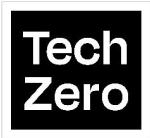The CDP deadline is just around the corner! Here’s what you need to know:
What is the CDP
The CDP is a non-profit disclosure system that helps investors, companies, cities, states, and regions measure and manage their environmental impact. The CDP supports institutions with their risks and opportunities on climate change, water scarcity, and deforestation for a sustainable economy.
Do I Have to Report?
Reporting to the CDP is typically voluntary, however, investors, companies, or other institutions of power may require reporting by CDP standards. Businesses may be required to report by stakeholders, particularly those in high-impact sectors or with extensive supply chains. Additionally, local, state/regional, or federal governments may be required to report through CDP disclosure to track progress toward environmental goals to ensure transparency and accountability.
When is the CDP Scoring Deadline?
The CDP Scoring Deadline is October 2nd. This is the last day companies can submit their responses to receive a formal score by the CDP. The score gives an indication of the organization’s environmental performance.
When is the CDP Reporting Window?
The CDP Reporting Window is from June 4th to October 16th. This is the window when organizations can submit their responses. However, submissions after October 2nd may not receive a score.
How Do I Report By the Deadlines?
Organizations must be registered with the CDP to report and requirements vary by industry and company size. Use your CDP portal to complete and submit the required information by the CDP deadline.
It is important to review all of the questions in the questionnaire in order to prepare for all of the important data and information required. Some questions may be more complex than others such as data that requires third party verification.
Should I Report Scope 3 Emissions?
Scope 3 emissions are responsible for about 95% of a company’s overall footprint, and the supply chain alone is responsible for about 80% in the CPG industry. Addressing supply chain emissions, and Scope 3 as a whole, is key to meaningful carbon reduction for CPG companies. Companies that report their Scope 3 emissions will gain stakeholder trust as investors and consumers pressure companies to reduce their environmental impact.
Furthermore, taking action within Scope 3 can increase efficiency and reduce operational costs. This includes using recycled materials (reducing money, time, and resources sourcing virgin materials), reducing packaging materials (more compact and lighter weight designs reduce transportation and storage costs), and increasing energy efficiency (reducing electricity consumption and associated costs). These actions can decrease reliance on finite resources and increase company resiliency, appealing to investors and consumers alike.
Navigating Scope 3 Emissions: Strategies for Success
Companies often run into barriers when addressing Scope 3 emissions. Lack of data, reliable data, and expertise are common roadblocks when companies begin their sustainability journey.
Data Collection: Gathering accurate data from suppliers and partners can be difficult. Working with suppliers and partners is essential to understanding your supply chain and unlocking opportunities, like environmentally friendly materials and reduced packaging, to reduce impact. Establishing clear expectations and data sharing capabilities can ensure data accuracy and foster supply chain innovation.
Standardization: Reporting emissions can be a confusing and complicated process. Many industries lack standardization to effectively communicate environmental impacts to stakeholders. Following a well-known framework is important for stakeholders to understand the report for decision-making.
Expertise: Navigating reporting frameworks, legislation requirements, and synthesizing raw data can require extensive knowledge, taking time and resources that companies would rather put somewhere else. Leveraging companies that streamline these processes for reporting and analysis, such as life cycle assessments, can be the best use of time and resources to increase operational efficiency and reduce environmental impact.
Benefits of Overcoming Scope 3 Challenges
Working through the barriers or Scope 3 emissions can provide a number of benefits to companies. Leveraging this opportunity to become leaders in the industry can attract stakeholders, enhance brand image, unlock financial benefits, and stay ahead of impending regulation.
Organizations like the CDP are helping make Scope 3 reporting more accessible, with guiding questions to create standardization within the industry. Taking advantage of these resources and capitalizing on the insights it can provide can give your company a competitive edge and a sustainable future.
Key Takeaways
The CDP is a crucial reporting system that helps companies measure and manage their environmental impact, particularly focusing on climate change, water scarcity, and deforestation. Reporting to the CDP, while often voluntary, may be required by investors, stakeholders, or governments, especially for companies in high-impact sectors. The CDP Scoring Deadline is October 2nd, and submitting responses by this date is essential for receiving a formal score.
Addressing Scope 3 emissions is vital for companies, as they constitute a significant portion of the overall carbon footprint, particularly in the CPG industry. Companies face challenges in Scope 3 reporting, including data collection, standardization, and expertise, but overcoming these hurdles can lead to increased stakeholder trust, operational efficiency, and a competitive edge. Leveraging the CDP framework and partnering with experts like CarbonBright can streamline the reporting process and support meaningful carbon reduction efforts.
At CarbonBright, we believe in your potential to make a difference. We specialize in developing innovative solutions that enable organizations to conduct Life Cycle Assessments (LCAs), quantify their emissions, and meet stringent regulatory requirements. By partnering with CarbonBright, organizations can achieve a more efficient and cost-effective solution compared to traditional methods. Our scientifically-based approach, aligned with industry standards, ensures accurate and credible results that support your journey towards sustainability and compliance with emerging climate action standards.
Contact us to learn more about how we can help you accelerate your sustainability journey and meet the complex requirements of Life Cycle Assessments (LCAs).
